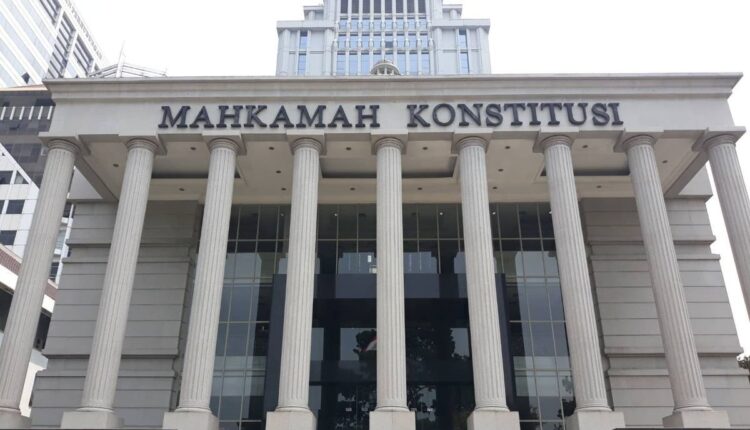Government Pushes for MK Integrity in Pilkada Dispute Hearing
By: Yossi Sianipar )*
The 2024 simultaneous regional elections are an important momentum for Indonesian democracy. In this process, the Constitutional Court (MK) plays a crucial role as an institution that handles disputes over regional election results. As the guardian of the constitution, the integrity and neutrality of the Constitutional Court are non-negotiable elements. One issue that always gets attention in this context is the potential for conflicts of interest, especially when judges handle cases involving their hometowns or close family.
Member of Commission II of the PKB Faction of the Indonesian House of Representatives, Mohammad Toha, appreciated the MK’s strategic move not to appoint judges to handle cases from their home regions. This strategy is important to maintain objectivity and ensure there is no conflict of interest when handling Pilkada disputes. This also includes prohibiting judges from handling cases related to their families or relatives who are regional head candidates. This step shows the MK’s seriousness in maintaining public trust in the constitutional court institution.
As an institution that has long experience in resolving general election disputes (PHPU), the Constitutional Court has great capital in handling the 2024 Pilkada dispute. Member of Commission II of the Indonesian House of Representatives, Ahmad Irawan, expressed his belief that this experience will be an important provision to improve the quality of case handling. He is confident that with the experience they have, both in terms of management and technical aspects of case handling, the resolution of the 2024 Pilkada dispute will be better than before.
This optimism is supported by the Constitutional Court’s commitment to continue evaluating and adapting to various challenges that may arise in the 2024 Pilkada. In this case, transparency and professionalism are the keywords to maintain public trust. With all the preparations made, the Constitutional Court is expected to be able to decide cases fairly and independently, without influence from any party.
Chief Justice of the Constitutional Court, Suhartoyo, emphasized the importance of justice in the process of handling Pilkada disputes. He appealed to all related parties to fully submit to the Constitutional Court to decide the case fairly without any influence in any form. This statement illustrates the determination of the Constitutional Court to carry out its constitutional duties by upholding the principle of justice.
The decisions taken by the Constitutional Court not only have legal impacts, but also social and political ones. Therefore, the Constitutional Court needs to ensure that every step taken is able to reflect justice and provide legal certainty to all parties. In this context, the role of society and political elites is important to support the ongoing legal process.
As part of a democratic country, the community has a strategic role in maintaining conduciveness during the process of handling Pilkada disputes. The Constitutional Court’s decision, whatever the result, must be respected as part of a legitimate legal process. Horizontal conflicts that often arise due to dissatisfaction with the results of Pilkada disputes will only harm all parties. Therefore, the community needs to understand that every Constitutional Court decision is the result of a fair and transparent process.
It is also important for the mass media to act as a transmitter of accurate and non-provocative information. The media has a moral responsibility to support the creation of a peaceful atmosphere, especially during crucial times such as the regional elections. Constructive and educational narratives can help the public understand the legal process better and avoid the spread of hoaxes or provocative information.
In facing the dynamics of the 2024 simultaneous regional elections, all parties have a responsibility to maintain national stability and security. The Constitutional Court as a constitutional judicial institution has shown a high commitment to deciding cases fairly and independently. Strategic steps such as avoiding conflicts of interest among judges are a real form of this effort.
The public is urged to fully support the Constitutional Court’s decision and not be provoked by parties seeking to divide. Whatever the outcome, let us maintain unity and respect the democratic process that has become part of our political culture. By supporting each other and strengthening trust in state institutions, Indonesia will be able to overcome this challenge better, towards a more mature and integrated democratic future.
)* The author is a law graduate working at Aman Wijaya Law Firm
